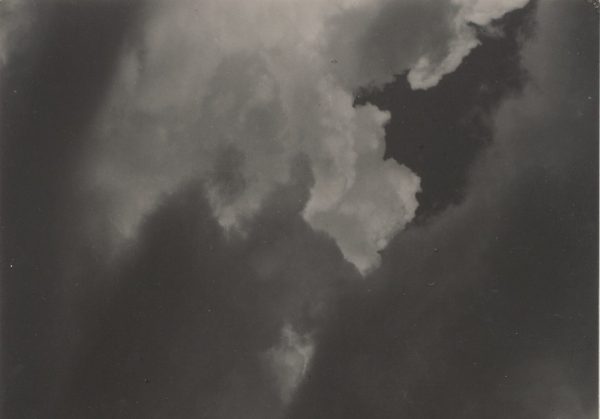
Alfred Stieglitz, 1925, Gelatin silver print. Image courtesy of the Metropolitan Museum of Art.
It’s not as thin as one might think, though
there is only one version, and each copy
features only the words—no music.
In a brief moment of inspiration, Lucifer
himself penned “God is Dead” watching
Golgotha from afar. It was popular
for a few days. Notable titles include “Backslidin’
Away,” “Every Sin’s a Deadly Sin,” “Babylon
on my Mind,” and “You Don’t Need Our Help.”
At command, the shedim and mazzikim
gather, often in the desert, performing
sometimes for fasting monks like St. Anthony,
all too familiar with their voices before
a single hair of his beard went gray.
They don’t sing so much as bellow
and snarl in unison—notes they learned
from us in casinos, coliseums,
and bedrooms. Lucifer often leads
in the first verse, but for millennia now
he has left before the number is complete,
and not even Moloch has ever asked why.
He thunders to the end, remembering the old
decree against the songs, even the sounds
they used to sing. None of the demons know
Lucifer slips away not from boredom or duty, but
to break his own law. The curses leveled against him
stole form, maligned feature, but left his voice
untouched. While his fallen rumble in the distance,
he opens his throat with a strain even the seraphim
remember. He sings not of God, nor of man,
but a chronicle of angels, born of light and desire,
beautiful as only they could be. And only of this,
in a cavern where his own voice, faint, sings back.
Phillip Aijian earned an MA in creative writing from the University of Missouri and is currently finishing a PhD in English at the University of California, Irvine. His poems have been published in ZYZZYVA, Camas, Poor Yorick, and Chariton Review.









